Thinking of adding a new member to your family that isn’t a cat or dog but is still kid-friendly? Don’t fret, we’ve got you covered. Many non-traditional animals make great companions for children. Here’s the ultimate guide to family-friendly exotic pets to help you choose the best one for your family.
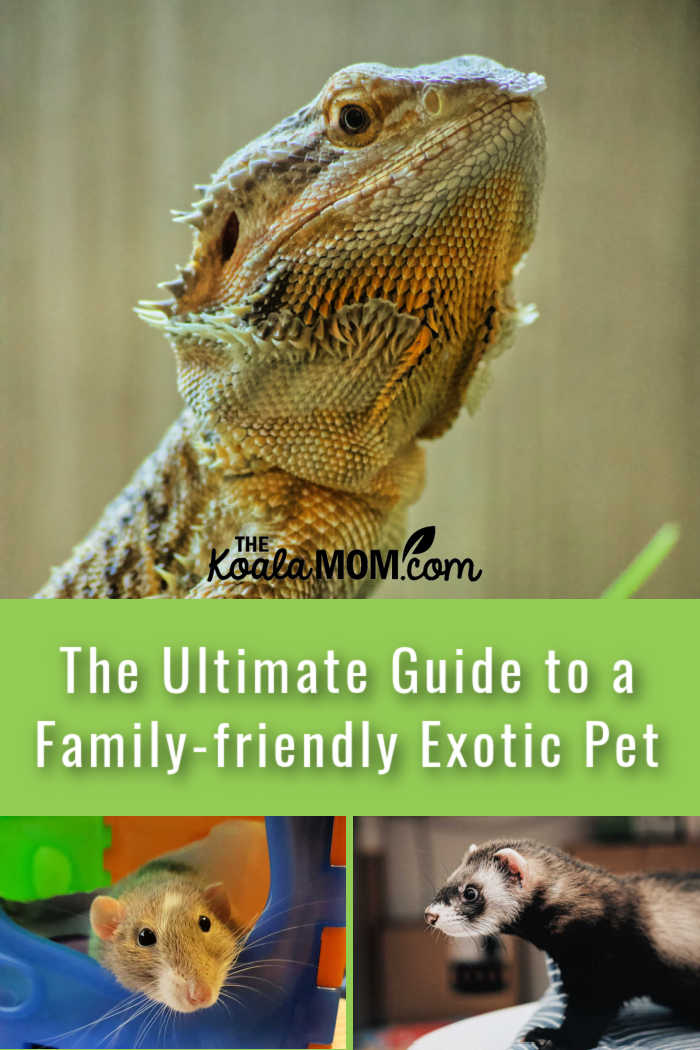
The first thing to teach your kids before introducing any animal companion is the importance of life. Even exotic pets are living beings and not toys to be played with and discarded later on. Kids must understand the responsibility and nurturing that a pet requires and be able to fulfill their duties as owners.
A pet shouldn’t be adopted just because they look cool. Additionally, parents must be aware that some exotic pets like reptiles are usually wild and can be potentially dangerous to children.
Preparation for Getting a Pet
A pet is a lifetime commitment and such decisions shouldn’t be taken on a whim. Take the time to research different family-friendly exotic pet and their requirements, and ensure whether you (and your children) are capable of handling them. Your local library may be a good source of books about the pet your kids want.
Commitment
Depending on the species, exotic pets can live between 5 and 20 years. Therefore, you need to be prepared to care for them for a long time. Try to think not only about what the pet needs now, but what it will need in five or ten years. If your child heads off to university, will he take his pet with him or will you have some company in your empty nest?
Size
Rabbits and guinea pigs can be tiny and easy to handle whereas iguanas are known to grow up to 6 feet tall. While your child may fall in love with an adorable pet now because of it’s small size, remember that pets grow. Look up what size the adults are and how much they change as they grow. Will your child still love their pet when it is two or three times as big and perhaps not quite as cute?
Accommodations and Equipment
The size of your exotic pet will factor into selecting their enclosure. However, some animals require larger cages than advertised by pet stores. Furthermore, some animals need exercise outside the cage. This might not be feasible for families living in small apartments.
Exotic Pet Diet
An important aspect of pet care is their diet. For exotic pets, the difficulty faced acquiring food goes up another notch. Oftentimes, it might get hard to get a commercial diet for some animals whereas others need special diets like freshly made salads or frozen mice. Thus, keep in mind that the pet care costs can go up.
Insects are a common diet for most exotic pets. You must choose high-quality insects such as those provided by Topflight Dubia Roaches to give your pet a nutritious diet. Poor quality food can make your pet sick as well as shorten their lifespan.
When researching your pet, make sure you can get affordable, quality pet food for it nearby.
Pet Compatibility
Since you are adopting the pet into a family with kids, you need to assess their compatibility with children. There are dangers associated with keeping such pets and this goes both ways. Some are delicate and need to be handled with care whereas others can be prone to bite or scratch small children and even transmit diseases.
We looked at rescue animals for a time. However, as many of these came from abusive homes, they often weren’t suitable for families with young children.
Legal Issues with Exotic Pets
Some exotic pets fall into the endangered category or are dangerous to keep. Such pets may be illegal to be domesticated. Check whether your state has any such restrictions before going through the adoption process.
Home Environment
Pets can be noisy and this is true for exotic pets as well. Ask yourself whether you are okay with noisy birds or the frequent dropping of rodents and rabbits. Furthermore, larger animals require more space including cages, toys and supplies. Therefore, people with small apartments or nearby neighbors who are likely to complain about the noise are better off without such pets.
You will also need to pet-proof your house from inquisitive animals likely to chew, scratch or dig into furniture or household items. Elevate electrical cords, remove poisonous houseplants and change cleaning materials. Chemical-free, water-based cleaning products are best for pets (and children!) as these won’t leave any harmful residues in your home.
Time and Expenses
Many exotic pet like birds and ferrets need constant interaction and upkeep for their health. Long periods of negligence can turn them irritable and prone to violent attacks or depression. Therefore, those with long working hours are best off not buying pets like birds, ferrets or rodents.
Expenses are another factor to consider. Many exotic pets can be purchased cheaply or adopted for free. Pets need food and water from twice daily to weekly. You will also need to consider weekly deep cleaning and daily spot cleaning, veterinary visits, vaccinations, parasite prevention, toys and more. Any emergencies should also be accounted for as many exotic pets aren’t insured. An extensive analysis of your funds and pet expenses should be considered before your pet arrives.
Exotic Pet Options
Let’s go over the various family-friendly exotic pet options for your family.
Rats
These intelligent and easily tamable rodents are child-friendly. They love to be handled and easily learn tricks. They are also low maintenance and don’t have biting tendencies. Rats are nocturnal animals that prefer to be in pairs so you will need a large cage for them with a nesting box to hide.
Contrary to popular belief, pet rats are clean and groom themselves several times a day. With a sadly short lifespan of 1-3 years, these creatures will bring you a brief but joyful time together.
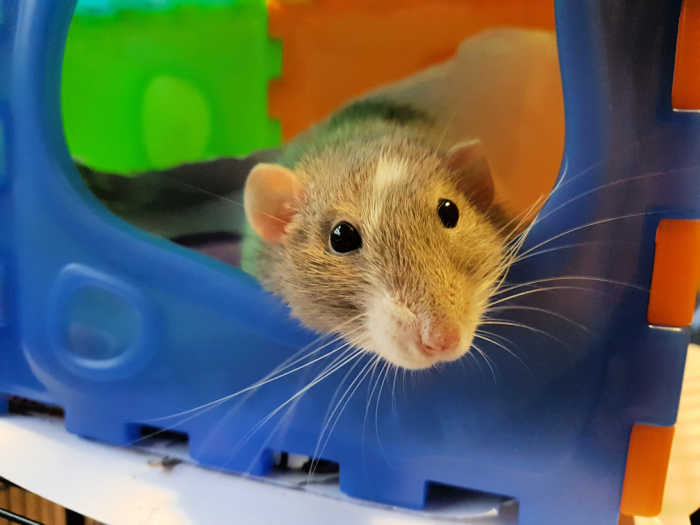
Gerbils
Similar to rats, gerbils are also friendly and should be kept in pairs. They tend to live for 2-3 years and need some patience to be tamed. They have fun interactions with each other and sleep several cycles throughout the day. Teach your child not to grab them by the tail, which can lead to dislocation and permanent, painful injuries for the animal.
Ferrets
These extremely playful and inquisitive pets are a joy to watch. They are easily trained but mischievous, so watch out for escape, trauma or foreign body ingestion. Pet ferrets need yearly vaccinations and regular checkups. Older ferrets may need surgery and medications. You will also need to be able to adjust to their slightly odorous effect.
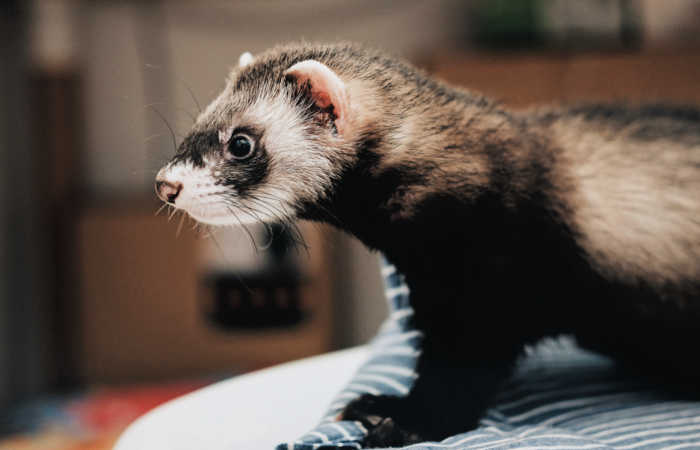
Guinea Pigs
An ideal pet for kids, guinea pig enclosures should be as large as possible and placed in the social area of the house. Guinea pigs should also live in pairs. They respond to your routine and are active throughout the day, so they can play with your kids. These affectionate fur balls love exercising and can live from 5 to 8 years with a diet of fresh foods rich in vitamin C.
Bearded Dragon
Bearded dragons are an extremely popular choice as reptile pets. Their patience and ease of care coupled with a close bonding with owners have contributed to their popularity. Bearded dragons need at least a 75-gallon aquarium with a screened top, a UV lamp, and branches with hiding spots. You will need to regularly spritz water to provide moisture and a diet of grubs. They usually live for 6-10 years.
Contrary to their name, these docile creatures are known to respond to their owner’s gestures and calls calmly.
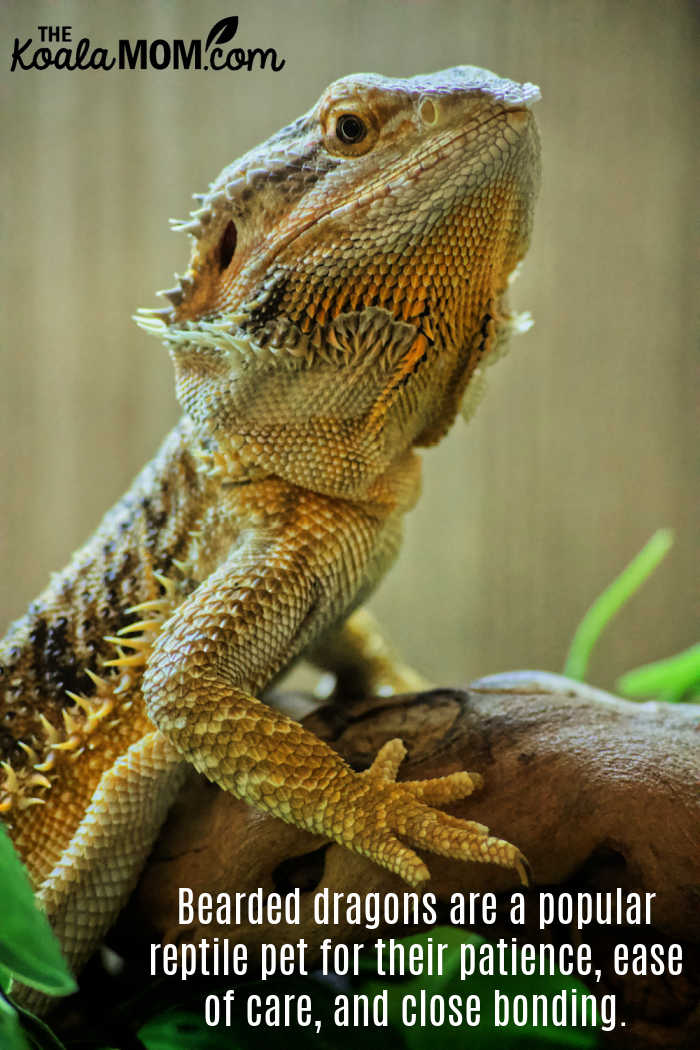
Hamster
A great starter pet, these little guys are nocturnal and require careful handling (they bite when aggravated!). However, with patience and practice, your child and hamster will become the best of friends. An enclosure with obstacles like pipes and wheels to keep them active is ideal.
Leopard Geckos
The easiest reptiles to handle are leopard geckos. They are quite docile and allow themselves to be handled by children. Fortunately, these little lizards are odorless and are very quiet. Though they do not need a special UV-producing light, they still require an investment in a tank set up and can be satisfied only with insects.
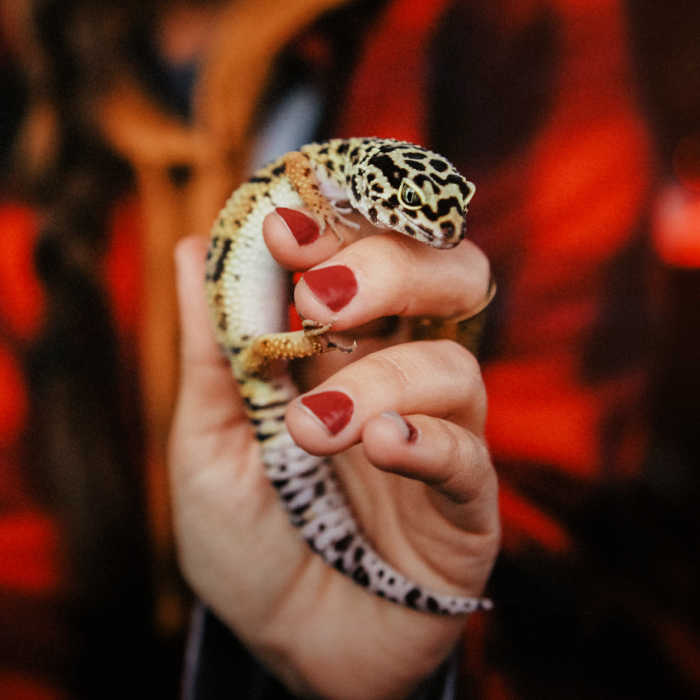
Ready to Get Your Exotic Pet?
Once you have decided on your new friend, all the pet supplies—habitat, food, etc—should be purchased before adopting. This will help reduce stress for both you and your new pet on adoption day! Set up your pet’s new habitat and discuss some rules with your children before picking up the pet.
Adopt through rescue groups, shelters, humane societies, or purchase from pet stores or private breeders. These small creatures are wonderful additions to your family and will remain friends for life.
Do you have an exotic pet? Have your kids asked you for a pet rodent or reptile?

No Responses Yet